This post continues the tour of the front yard that started here. Part 1 covers the long L-shaped planting bed along the sidewalk. Part 2 is about the area inside the 4-foot fence that surrounds the front yard. It's a snapshot of what the garden looked like in early November 2021.
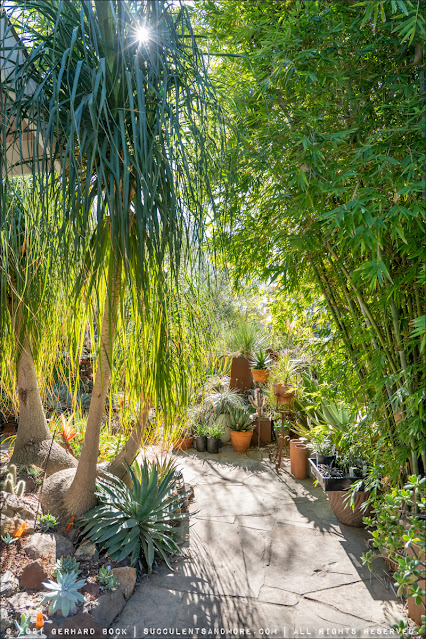 |
| Ponytail palms (Beaucarnea recurvata) and bamboo (Bambusa chungii 'Barbellata') as you walk into the fenced-in part of the front yard |
 |
| Aechmea blanchetiana peeking out from behind one of the ponytail palms |
 |
| Dasylirion longissimum in Corten pedestal planter |
 |
| Agave parryi var. huachucensis 'Excelsior' and Aloe longistyla |
 |
| Spiky plants look so good when backlit |
 |
| Left to right: Ferocactus emoryi, Agave applanata 'Cream Spike, Ferocactus pilosus. The green foliage next to Ferocactus pilosus is from a clump of Lachenalia aloides var. quadricolor bulbs now emerging. |
 |
| Hechtia argentea |
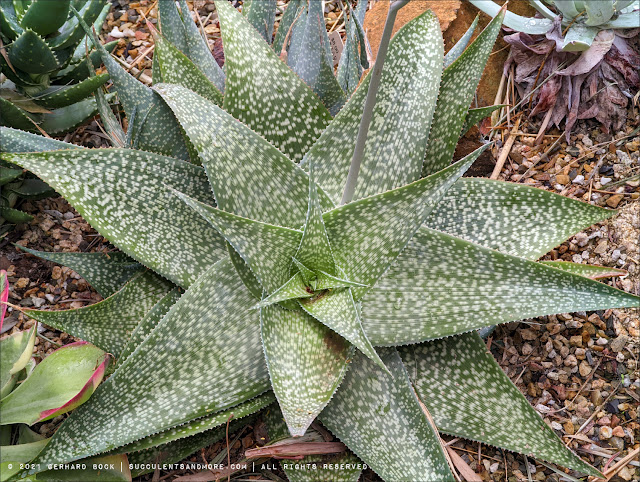 |
| Aloe deltoideodonta 'Sparkler' |
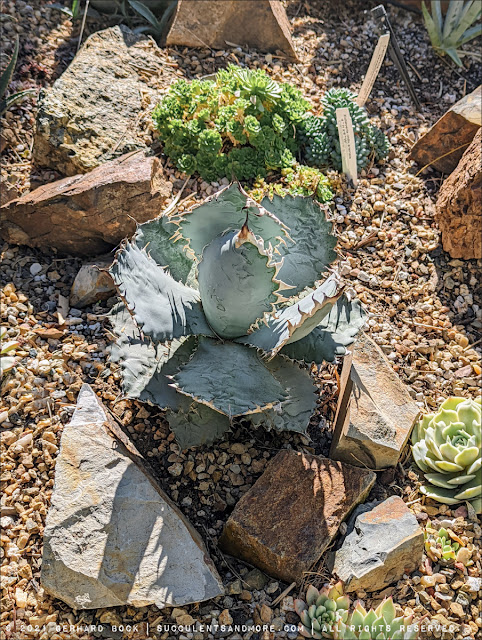 |
Agave titanota 'Lion's Mane'
|
 |
| Different view of Echinopsis 'June Noon', with Oreocereus celsianus and ×Mangave 'Iron Man' |
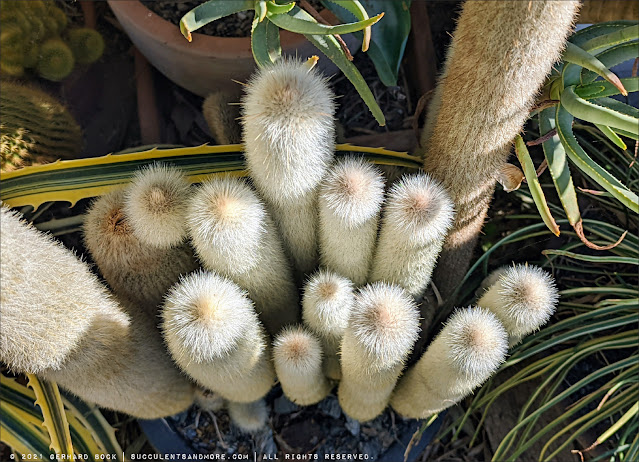 |
| Top view of Cleistocactus strausii growing in a glazed pot. This started out as one stem, years ago. Now there are over a dozen. |
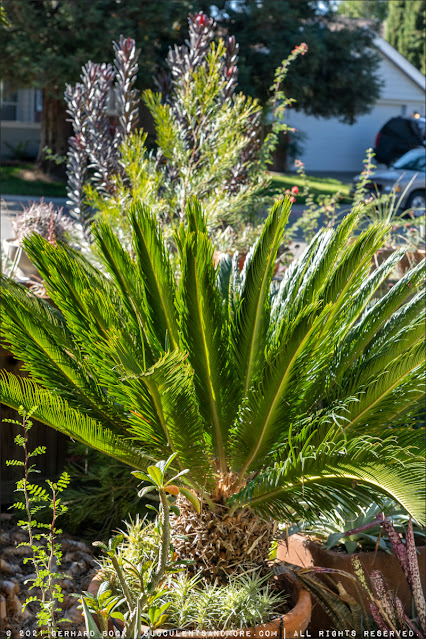 |
| Sago palm (Cycas revoluta) in a large terracotta pot. It's over 20 years old, and if I'd planted it in the ground at the time, it would probably have a 4-foot trunk by now. In the very back is Leucadendron 'Ebony' finally taking off after 5+ years in the ground. |
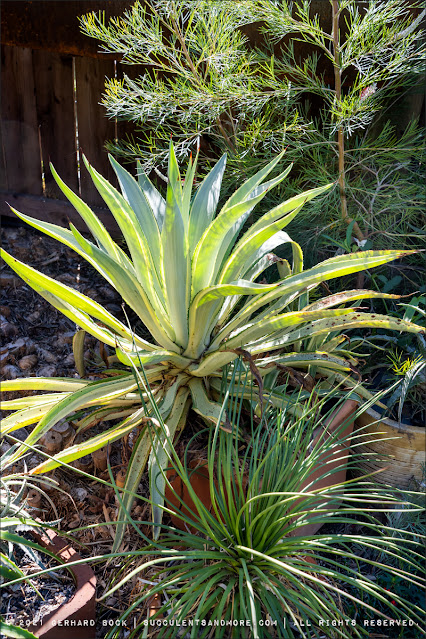 |
| Agave desmetiana 'Joe Hoak' (top) and Agave geminiflora (front), with Grevillea 'King's Celebration' in the top right corner |
 |
| Succulent mounds |
 |
| ×Mangave 'Iron Man' again, with ×Mangave 'Lavender Lady' on the right and Agave parrasana 'Fireball' immediately on the left |
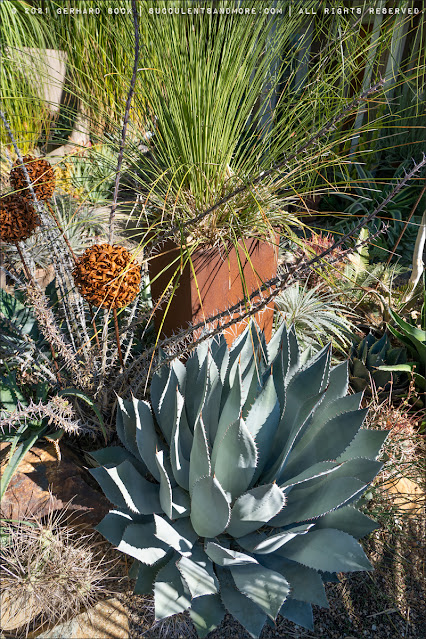 |
| Agave shrevei var. matapensis × guadalajarana |
 |
| gave shrevei var. matapensis × guadalajarana (top right), |
Agave ovatifolia 'Killer', and ×Mangave 'Blazing Saddles'
|
 |
| Agave 'Blue Glow', Yucca queretaroensis, and an ever-blooming African blue basil from Annie's Annuals. The latter needs a haircut badly, but it's a major bee attraction so I've hesitated. |
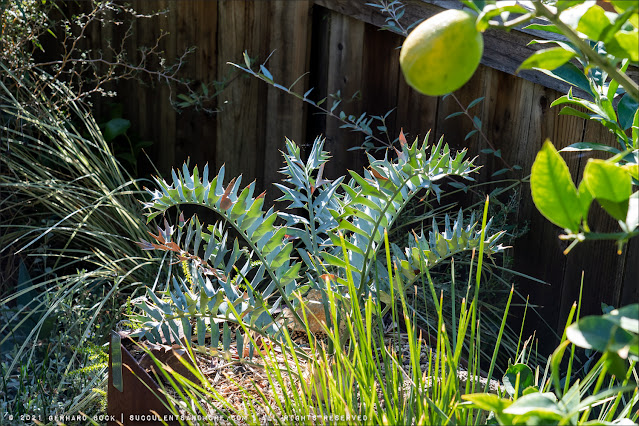 |
| Encephalartos horridus, dwarf form, and a photobombing Meyer lemon |
 |
| Smaller of the two succulents mounds inside the fenced-in front yard |
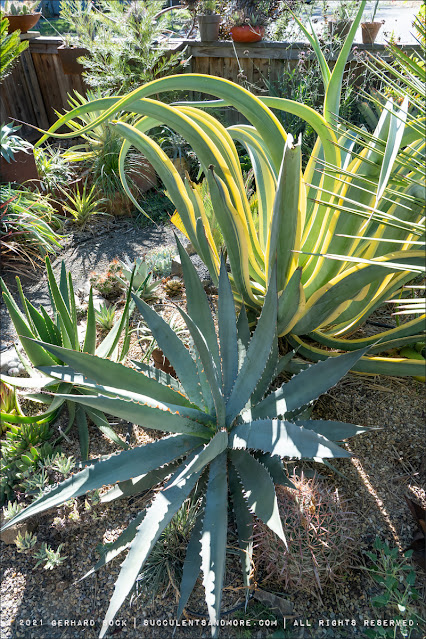 |
| Agave xylonacantha and Agave vilmoriniana 'Stained Glass' |
 |
| Agave titanota from habitat seed |
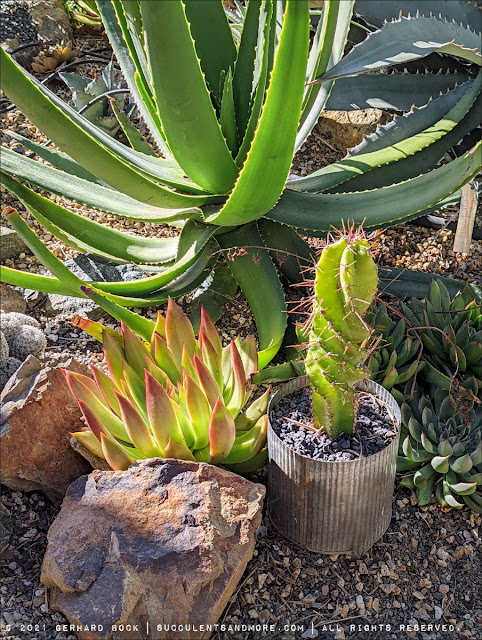 |
| Echeveria agavoides 'Christmas', Cereus forbesii 'Spiralis' (in the metal container), and Aloe hoffmannii × ericetorum |
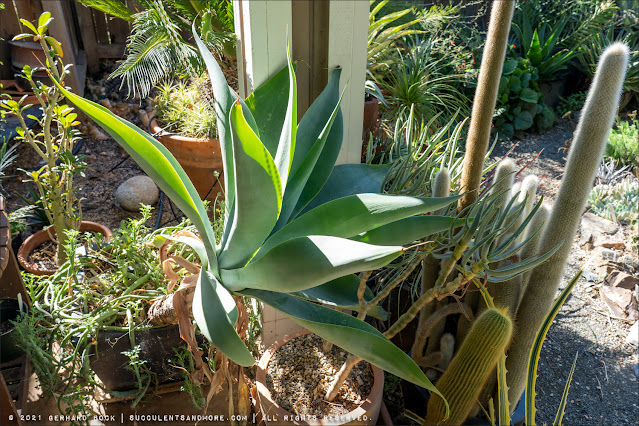 |
| Agave attenuata 'Boutin Blue' |
 |
| Mistletoe cactus (Rhipsalis baccifera). Another pass-along plant, this one from Loree Bohl. |
 |
| Dudleya brittonii hybrid |
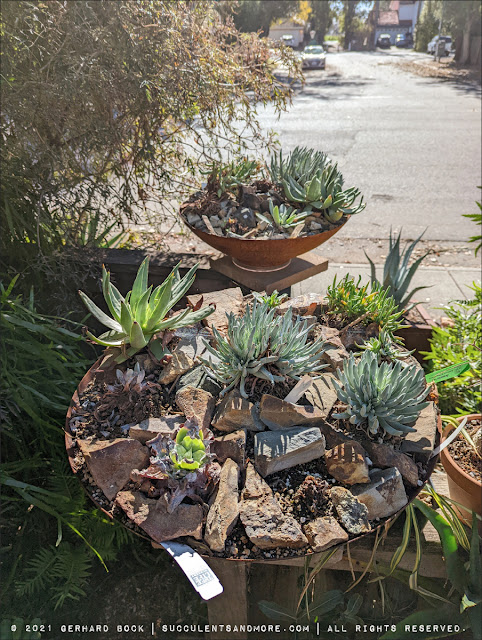 |
| More dudleyas, now entering their active growth phase. In another week or two, they'll look fantastic. |
The recent rains has really made a difference. Tired plants have perked up, and the dust accumulated over a long hot summer is gone. Time to breathe!
© Gerhard Bock, 2021. All rights reserved. To receive all new posts by email, please subscribe here.


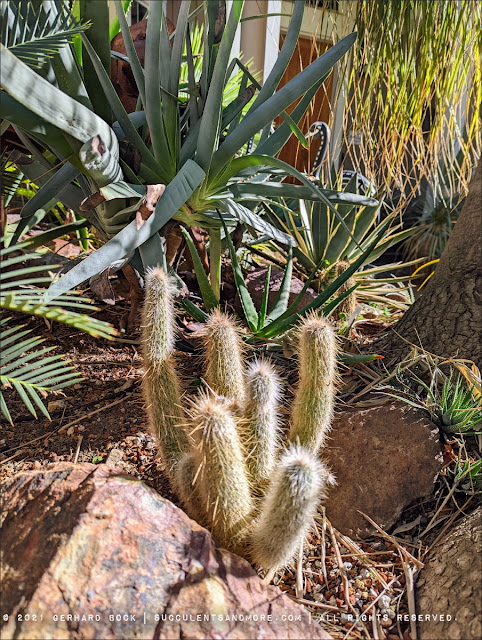

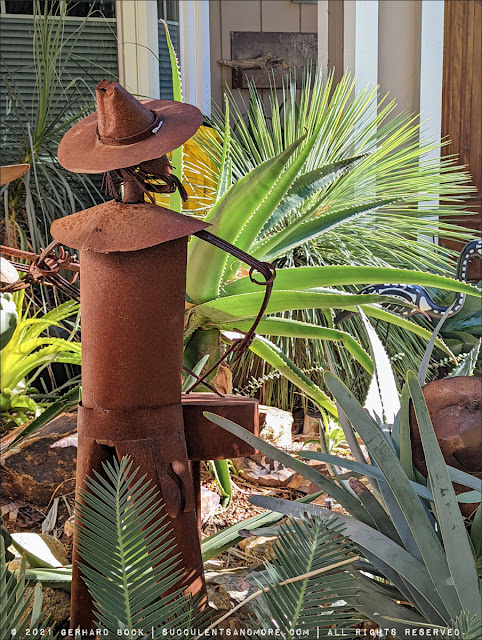





























I love Aloe deltoideodonta 'Sparkler'. I need one. You are so lucky to have had some rain recently. I wish we did here in Phoenix!
ReplyDeleteNancy, email me your address and I'll send you a pup of 'Sparkler' :-)
DeleteInside the fence looks as great as outside. Lighting on all the photos very autumn-like--isn't the autumn light a relief after the summer photon blast?
ReplyDeleteEncephalartos horridus--what gorgeousness!!
Every time I take photos now I'm surprised by how golden the light is!
DeleteIt's remarkable how well this garden space has filled in since you originally created those mounds. Your ponytail palms have me wondering if I should free mine from the large pot it's in, which I almost never water. I definitely wish I'd taken the same tact you did in planting Dasylirion longissimum in a raised planter.
ReplyDeleteFree your ponytail palms. They'll love being in the ground in your climate!
DeleteI assume you have a Dasylirion longissimum in the ground? I don't remember seeing it...
You have amassed a grand collection of plants. The succulent beds are looking better and better every time you feature them. The clump of Cleistocactus strausii are deceptive, looking soft and fuzzy... Aechmea blanchetiana back lit behind the ponytail palms massive trunk is a beautiful photo and I just love Ferocactus: those bright red thorns are gorgeous.
ReplyDeleteThank you! I'm gradually removing leafy plants that are getting too large and focusing on smaller succulents. The goal is to create a rock garden-inspired display, but with cacti, agaves, aloes and other succulents.
DeleteDoes your Oldhamii get windblown/ripped leaves during windy/cold winter days? Any difference you noticed from when it was a smaller plant to the size it is now?
ReplyDeleteYes, the leaves look pretty bad by the end of winter, especially near the top. But once warmer temps return and the oldhamii starts growing again, the ugly leaves are replaced fairly quickly.
DeleteGrowth overall was faster when the plant was small, but that's to be expected.